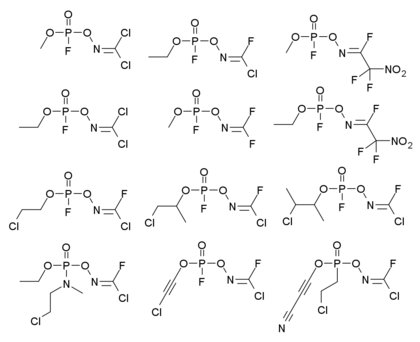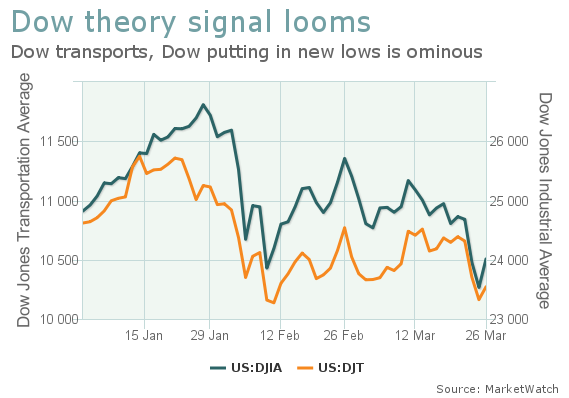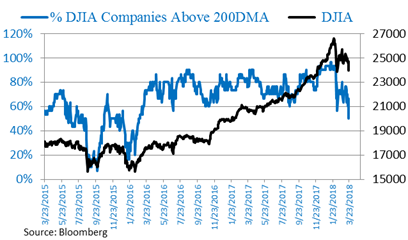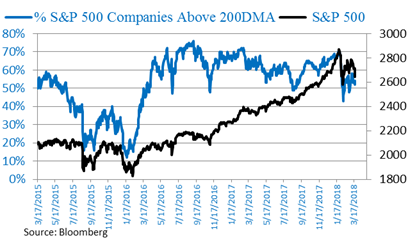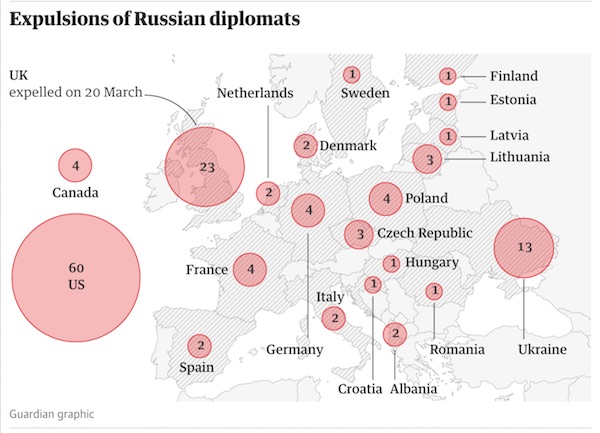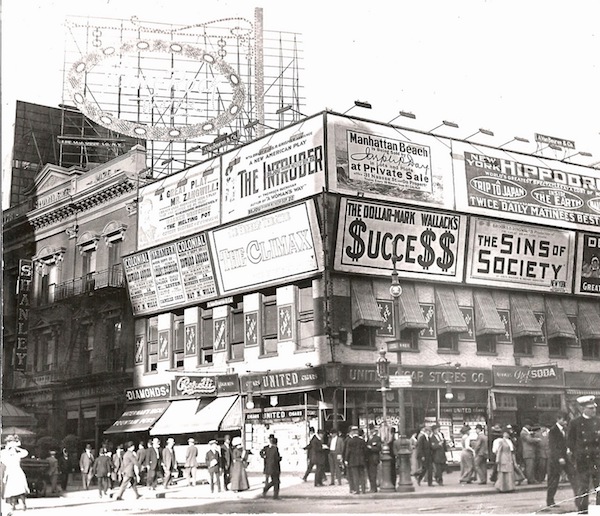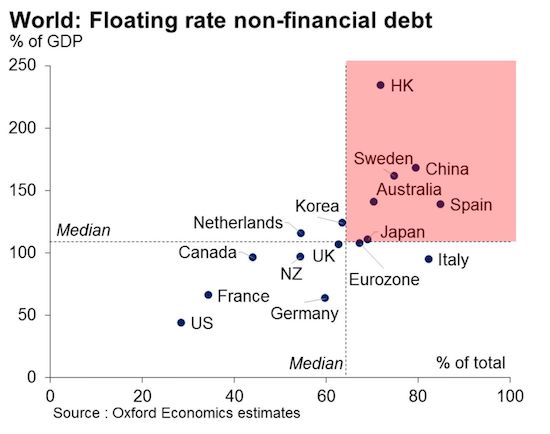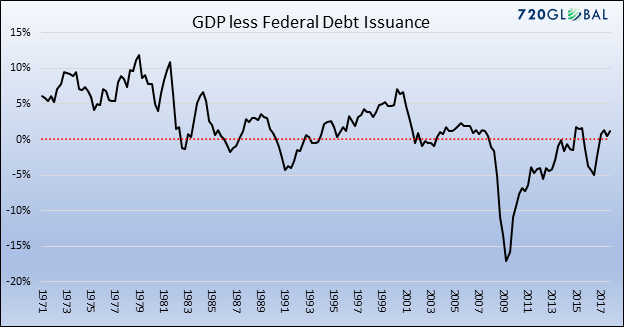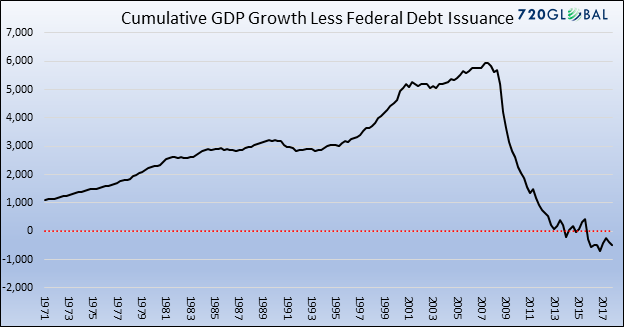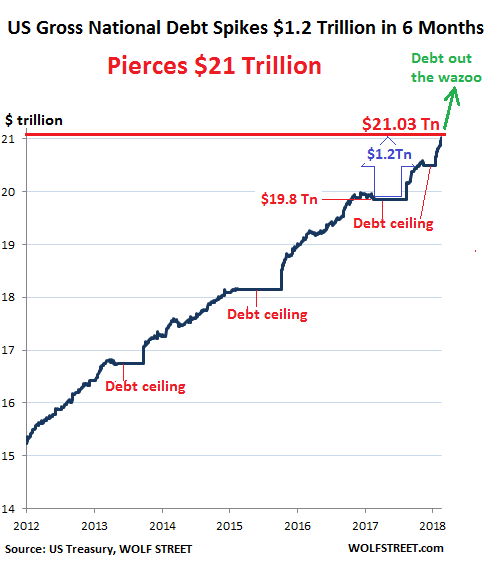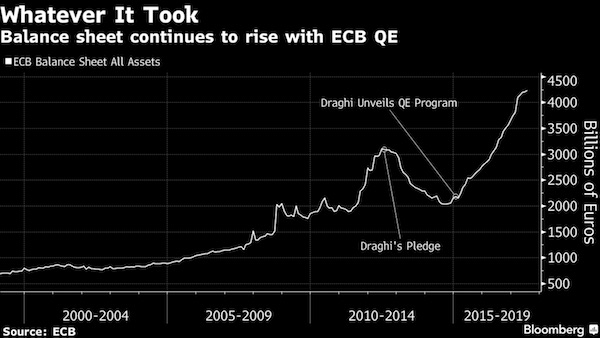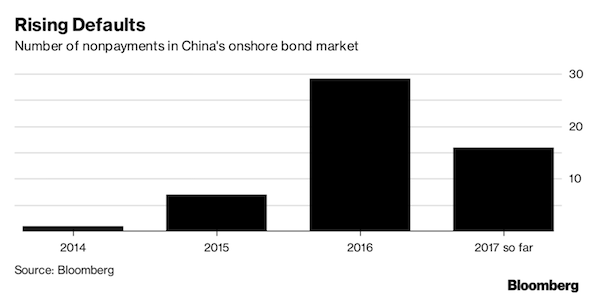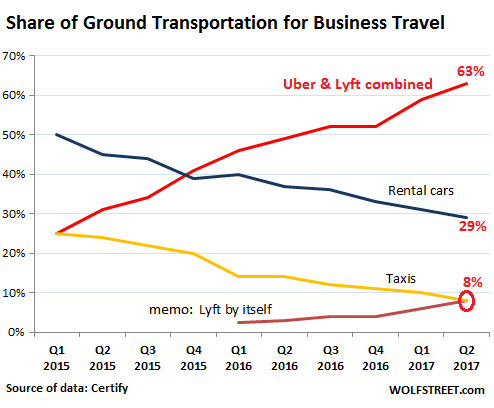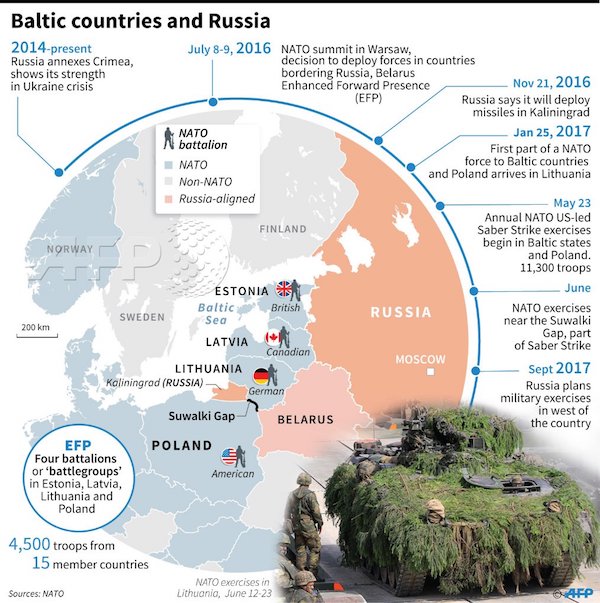
James McNeill Whistler Nocturne in Blue and Silver, The Lagoon, Venice 1880

“Amazon is a monstrous predator enabled by the state..” Are we seeing the Big Tech Backlash of 2018?
• The Donald’s Blind Squirrel Nails An Acorn (David Stockman)
It is said that even a blind squirrel occasionally finds an acorn, and so it goes with the Donald. Banging on his Twitter keyboard in the morning darkness, he drilled Jeff Bezos a new one – or at least that’s what most people would call having their net worth lightened by about $2 billion: “I have stated my concerns with Amazon long before the Election. Unlike others, they pay little or no taxes to state & local governments, use our Postal System as their Delivery Boy (causing tremendous loss to the U.S.), and are putting many thousands of retailers out of business!” You can’t get more accurate than that. Amazon is a monstrous predator enabled by the state, but Amazon’s outrageous postal subsidy – a $1.46 gift card from the USPS stabled on each box – isn’t the half of it.
The real crime here is that Amazon has been exempted from making a profit, and the culprit is the Federal Reserve’s malignant regime of Bubble Finance. The latter has destroyed financial discipline entirely and turned the stock market into the greatest den of speculation in human history. That’s why Bezos can kill established businesses with impunity. The casino allows him to run a pernicious business model based on “price to destroy”, rather than price for profit and a return on capital. Needless to say, under a regime of sound money and honest capital markets Amazon would be a far more benign economic creature. That’s because no real investors would value AMZN’s money-loosing e-Commerce business at $540 billion – nor even a small fraction of that after 25-years of profitless growth.
[..] At the end of the mini-correction in February 2016 Amazon’s market cap was $230 billion, but just 25 months later it was worth $775 billion at its March 12 peak. That staggering $545 billion gain in market cap had absolutely nothing to do with financial performance, of course. Operating free cash flow was a meager $6.4 billion during 2017 and had been $6.6 billion two years earlier. That is to say, AMZN was valued at a frisky 35X free cash flow in early 2016 and a completely insane 121X a few weeks ago. The fact that Bezos’ net worth exploded by $100 billion during that same 25 month interval perhaps explains why even the Donald found his acorn.

By all means, let’s stop talking.
• Russia To Expel 150 Diplomats And Close US Consulate In St Petersburg (Ind.)
Russia has said it will expel around 150 diplomats and close the US consulate in St Petersburg in retaliation to the coordinated international response over the poisoning of a former Russian spy in Britain. More than two dozen countries, including the US and many EU nations – as well as Nato – have ordered more than 150 Russian diplomats out this week in a show of solidarity with Britain over the poisoning of Sergei Skripal and his daughter Yulia in Salisbury earlier this month. The UK has accused Russia of responsibility for the attack, during which it claims the Skripals were exposed to a class of nerve agent called novichok. Russia has denied being involved and its foreign minister Sergei Lavrov made clear that all expulsions will be responded to in kind.
Mr Lavrov said that US Ambassador Jon Huntsman was summoned to the Foreign Ministry where he was given notice that Russia is replicating the US decision to order 60 Russian diplomats out. Mr Lavrov added that Moscow will also retaliate to the decision by Washington to shut the Russian consulate in Seattle by closing the US consulate in St Petersburg. The tit-for-tat expulsions come as no surprise. But the shuttering of the American consulate in Russia’s second city is an escalation. The Seattle consulate is Russia’s smallest diplomatic outpost in the US. Fifty-eight of the US officials are based in Moscow, with another two general consulate officials in the eastern city of Yekateringburg. They have been declared persona non grata and have been told to leave Russia by 5 April.
The US Consulate in St Petersburg has two days to suspend operations, according to Russian media. During the briefing Mr Lavrov accused Britain of “forcing everyone to follow an anti-Russian course” and that they were “making mockery of international law”. Russia has called for a meeting with the executive council of the Organisation for the Prohibition of Chemical Weapons (OPCW) to ask questions to “establish the truth”, he said. “The measures would be reciprocal … They include expulsion of the equivalent number of diplomats and they include our decision to withdraw our agreement to allow the United States’ general consulate to operate in St Petersburg,” Mr Lavrov said.

How does one recover from being infected with one of the most lethal nerve agents ever?
The photo, dated 3 days after the ‘attack’, shows a policeman standing by the front door to the Skripal home, the very door through which father and daughter were allegedly poisoned. He wears no protection.
• Yulia Skripal No Longer In Critical Condition (G.)
The condition of Yulia Skripal, who was poisoned with a nerve agent in Salisbury along with her father, is improving rapidly, doctors have said. Salisbury NHS foundation trust said on Thursday the 33-year-old was no longer in a critical condition, describing her medical state as stable. Christine Blanshard, the medical director for Salisbury district hospital, said: “I’m pleased to be able to report an improvement in the condition of Yulia Skripal. She has responded well to treatment but continues to receive expert clinical care 24 hours a day. “I want to take this opportunity to once again thank the staff of Salisbury district hospital for delivering such high-quality care to these patients over the last few weeks. I am very proud both of our frontline staff and all those who support them.”
Her father’s condition was described by the hospital as still critical but stable. Sergei Skripal, 66, a former Russian double agent, is believed to have been the main target of the attack. The update came as Russia said it was taking tit-for-tat measures against all the nations that have expelled Russian diplomats over attack. In a separate development, Scotland Yard said police had placed a cordon around a children’s play area near Sergei Skripal’s home as a precautionary measure. “Officers investigating the attempted murders of Sergei Skripal and his daughter Yulia Skripal are continuing to focus their enquiries around the Skripals’ home address,” a police statement revealed.
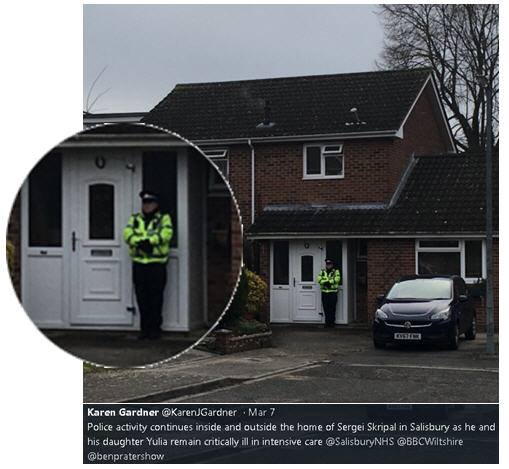

Both spending and saving are hit.
• UK Household Spending Hit Six-Year Low In 2017 Amid Brexit Inflation (PA)
Household spending slowed to its lowest annual growth for six years in 2017 amid Brexit-fuelled inflation, with borrowing surging and family savings slumping to a record low. Figures from the Office for National Statistics (ONS) confirmed economic growth slowed to 0.4% in the final three months of last year, down from 0.5% in the third quarter as weaker household spending took its toll. The ONS revised upgrowth for the year as a whole to 1.8% from the previous estimate of 1.7%, but this was still the lowest since 2012. It leaves the UK with the lowest growth among the G7 economies at the end of 2017 as it enters the final year of its membership of the European Union.
The quarterly national accounts data showed Britons turned to debt to support spending in the face of last year’s surging inflation, which outstripped paltry wage growth. The proportion of total income saved by households dropped to 4.9% in 2017, its lowest level since records began in 1963, the ONS said. Overall household spending fell last year to 1.7%, which was the lowest annual growth since 2011, according to the ONS. But there was some cheer in Thursday’s latest official data dump as figures revealed the UK’s current account deficit with the rest of the world narrowed to £82.9bn or 4.1% of GDP in 2017 – the smallest gap since 2011. This came as a growing world economy boosted the earnings on foreign investments.
In the fourth quarter, the current account deficit shrank by more than expected to £18.4bn, or 3.6% of GDP, down from £19.2bn in the previous three months. Net trade – exports less imports – made its largest contribution to full-year growth since 2011, the ONS reported.

Shaky?!
• Bitcoin Drops Below $7,000, Down 50% in 2018 (BBG)
Bitcoin’s miserable quarter isn’t over yet. The world’s biggest cryptocurrency by market value dropped below the $7,000 mark Friday morning in Asia, the first time it’s breached that level since early February, according to data compiled by Bloomberg. It fell as low as $6,912 before rebounding, trading at $7,094 as of 7:50 a.m in Hong Kong. The moves took the token’s losses in 2018 to a whopping 50%, and other digital assets, including rivals Ripple and Litecoin, slumped more. In addition, regulatory pressure is mounting in the cryptocurrency space, while major social media platforms are distancing themselves from the industry. Reddit, a community hub popular in the crypto community, no longer accepts payments made in Bitcoin, while Twitter confirmed Monday that it’s banning advertisements for initial coin offerings, joining Facebook and Google.
Looming over the market are sales of Bitcoin held by the trustee of Mt Gox, the now-defunct Japanese exchange. The trustee sold about $400 million in Bitcoin and Bitcoin Cash in the last few months to reimburse the exchange’s creditors, according to his recent report. The trustee had said that he will sell more of the cryptocurrency he holds. As of early March, he was sitting on more than $1 billion. “Bitcoin is under selling pressure again and chances of its recovery are looking slim,” Naeem Aslam at TF Global Markets said in a note. It has “slid significantly, since the tech giants’ ban on ICOs,” he noted. The slump this year is its biggest quarterly decline since 2011. Keep in mind that Bitcoin rallied 1,400% last year.
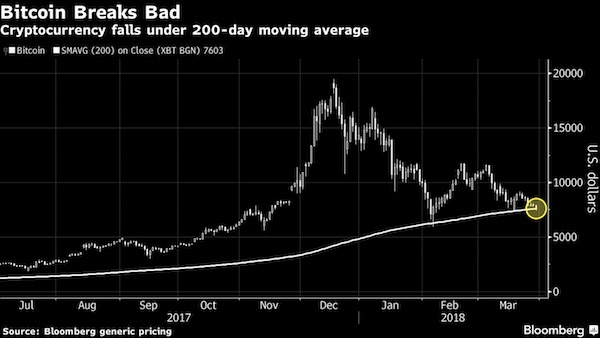

“Classic two hours after the close before a three-day weekend news release. Unbelievable (almost)!”
• Tesla Recalls 123,000 Early Model S Cars (BBG)
Tesla is recalling all Model S cars built before April 2016 to retrofit a power-steering component as the company caps its worst one-month performance in the stock market since December 2010. The issue, which the carmaker said has not led to any accidents or injuries, impacts only the flagship Model S sedan, not the Model X sport utility vehicle or more affordable Model 3. The recall affects roughly 123,000 vehicles globally. The carmaker said it’s performing the voluntary recall after observing “excessive corrosion in the power steering bolts, though only in very cold climates, particularly those that frequently use calcium or magnesium road salts,” according to an email sent to impacted customers Thursday.
“Nonetheless, Tesla plans to replace all early Model S power steering bolts in all climates worldwide to account for the possibility that the vehicle may later be used in a highly corrosive environment,” the electric-car maker said in the customer email. Tesla has been routed this month as analysts and investors have questioned the company’s ability to mass-manufacture its new Model 3 sedan. Bottlenecks at Tesla’s battery factory and assembly plant have undermined that effort, limiting the return on that investment and arousing concern that the company may need to raise more cash. Moody’s Investors Service also downgraded Tesla’s credit rating further into junk on Tuesday.

Maybe they can figure something out with Musk?
• Volkswagen Stores 300,000 Diesels Across US (R.)
Volkswagen has taken parking lots to a whole new level in the US – and will not be emptying them soon. Volkswagen AG has paid more than $7.4bn to buy back about 350,000 US diesel vehicles, a recent court filing shows. The German automaker has been storing hundreds of thousands of vehicles around the US for months. Volkswagen has 37 secure storage facilities around the US housing nearly 300,000 vehicles, the filing from the program’s independent administrator said. The lots include a shuttered suburban Detroit football stadium, a former Minnesota paper mill and a desert site near Victorville, California.
VW spokeswoman Jeannine Ginivan said in a statement the storage facility in Victorville, California, is one of many “to ensure the responsible storage of vehicles that are bought back” under the terms of the Volkswagen diesel settlements. “These vehicles are being stored on an interim basis and routinely maintained in a manner to ensure their long-term operability and quality, so that they may be returned to commerce or exported once US regulators approve appropriate emissions modifications,” she said. In total VW has agreed to spend more than $25bn in the US for claims from owners, environmental regulators, states and dealers and offered to buy back about 500,000 polluting vehicles.
The buybacks will continue through the end of 2019. The court filing said through 31 December Volkswagen bought back 335,000 diesel vehicles, resold 13,000 and destroyed about 28,000. As of the end of last year VW was storing 294,000 vehicles around the country. VW must buy back or fix 85% of the vehicles involved by June 2019 or face higher payments for emissions.

A populist address? What does that mean?
• Trump Says US Withdrawing From Syria ‘Very Soon’ (AFP)
US President Donald Trump insisted Thursday that US forces would pull out of Syria “very soon” and lamented what he said was Washington’s waste of $7 trillion in Middle East wars. In a populist address to industrial workers in Ohio, Trump said US forces were close to securing all of the territory that the Islamic State jihadist group once claimed. “We’ll be coming out of Syria, like, very soon. Let the other people take care of it now,” he promised, to applause. Trump did not say who the others were who might take care of Syria, but Russia and Iran have sizable forces in the country to support President Bashar al-Assad’s regime. “Very soon – very soon we’re coming out. We’re going to have 100% of the caliphate, as they call it – sometimes referred to as ‘land’ – taking it all back quickly, quickly,” he said.
“But we’re going to be coming out of there real soon. Going to get back to our country, where we belong, where we want to be.” State Department spokeswoman Heather Nauert was later asked at a briefing if she was aware of any decision for the US to pull out of Syria. She responded, “I am not, no. No.” The United States has more than 2,000 military personnel in eastern Syria, working with local militia groups to defeat the Islamic State group while trying to keep out of Syria’s broader civil war. Trump’s eagerness to quit the conflict flies in the face of a new US Syria strategy announced in January by then secretary of state Rex Tillerson – who has since been sacked. Tillerson argued that US forces must remain engaged in Syria to prevent IS and Al-Qaeda from returning and to deny Iran a chance “to further strengthen its position in Syria.”

This is not over.
• Sessions Rejects Calls for Second Special Counsel, Appoints Investigator (BBG)
Attorney General Jeff Sessions rejected calls from Republican lawmakers for a second special counsel to look into potential misconduct by the Justice Department and the FBI in past investigations of Hillary Clinton, saying that the issues were already under scrutiny. In a letter to three Republican committee chairmen, Sessions disclosed Thursday that he has assigned John Huber, a U.S. attorney based in Utah, to conduct an internal probe into complaints of FBI bias and wrongdoing. “I am confident that Mr. Huber’s review will include a full, complete and objective evaluation of these matters in a manner that is consistent with the law and facts,” Sessions wrote to Senate Judiciary Chairman Chuck Grassley, House Judiciary Chairman Bob Goodlatte, and House Oversight Chairman Trey Gowdy.
Sessions said he would consider the recommendations Huber might make, including “whether any matters merit the appointment of a special counsel” later. Huber has been the U.S. attorney in Utah since June 2015 and was twice confirmed unanimously by the Senate. He served for almost two years as an appointee of Democratic President Barack Obama, and was appointed by Sessions to continue his work in March 2017.| Gowdy and Goodlatte, in a joint statement released Thursday night, said that “while we continue to believe the appointment of a second special counsel is necessary, this is a step in the right direction.”
[..] Sessions reminded the chairmen in his letter that the department’s inspector general also is looking into some of the same matters. The attorney general’s letter came a day after that internal watchdog, Michael Horowitz, confirmed that he’s now examining the FBI’s actions early in its investigation into Russian campaign interference, including how it obtained a warrant to monitor Carter Page, a foreign policy adviser to the Trump campaign.



